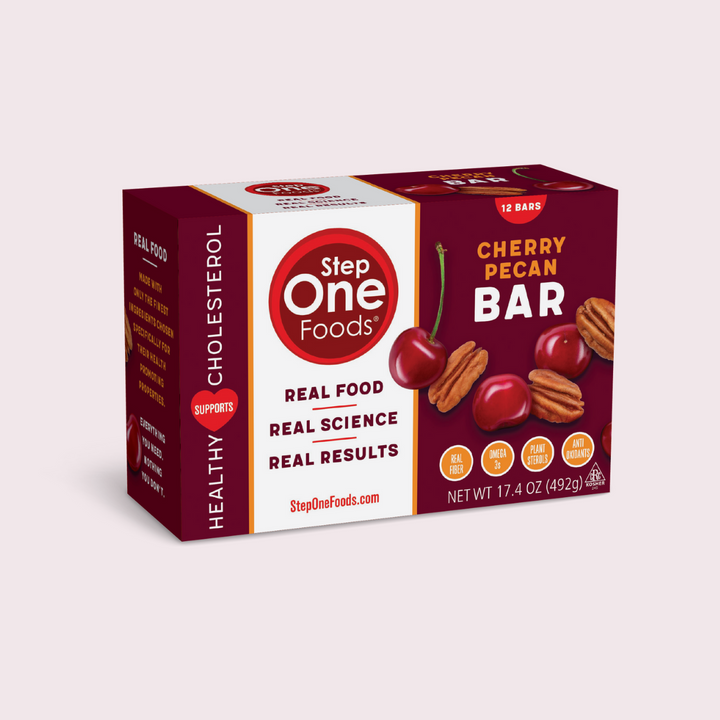Video: The food industry is misleading consumers

Are those healthy snacks in your pantry actually healthy?
Determining the true health benefits of the hundreds of food options you see in grocery aisles can be confusing. And that's by design.
Video Transcript
Hi this is Dr. Elizabeth Klodas and welcome to my video blog.
So if you're like me you probably hate being taken advantage of. And I often feel that this is the case when I'm walking through the middle aisles of a grocery store.
All of these packages screaming out health messages and how healthy and wonderful they are for us! But you know, a lot of the times these are just marketing ploys bending the truth to make a statement that appeals to us and makes us want to buy the product.
One of the most egregious is this phrase: “contains” or “made with” something like real fruit when there's actually no standard amount of real fruit that needs to be in a product for it to be able to say it was “made with” or “contains” real fruit. You could literally have a quarter of a raisin inside some product and it gets to say made with real fruit. That seems wrong and it shouldn't be so hard to decipher what's in our food.
But perhaps even more egregious is the use of terms that we find appealing or trendy to lure us in into buying a specific food product. For example, many people have woken up to the fact that food is a really important determinant of health. That food actually is medicine and that it can impact us. Whether it's our blood pressure, blood sugar, cholesterol, or weight. I mean it's actually pretty obvious that what we take into our bodies affect our health, right? So people have become more and more aware of this and they're also becoming much more interested in consuming products that are health promoting.
Well what are health promoting items? Things like turmeric - ingredients that are very high in antioxidants and have some documented anti-cancer properties for example. Well it turns out that turmeric by itself doesn't taste very good, so what's the food industry's answer? Well, let's just add flavors and colors and taste maskers so that when you eat the turmeric you'll love it without any thought being given to how you're altering the nutritional benefit of the food by putting in all these additives. It's the whole package that matters. It's not just the one ingredient that has the effect, it's the entirety of the food.
And the scale of egregious has sort of been going up and up - and probably the worst is using the lure of an ingredient when the product does not even contain the ingredient. Ginger is a great example. Manufacturers will use ginger flavor in their foods so they can put ginger on the front of a package and so that that's one of the things you see first - ginger. You go: “Oh I know that's good for me I'm going to buy that product” - even though it doesn't contain any ginger.
This just makes me so furious and actually I've been duped myself and you know and I think of myself as a savvy shopper. This is something I'm immersed in day in and day out but even I was fooled.
I was walking through Costco and they were sampling quinoa chips. And I'm a salt-oholic. I can't have potato chips in the house because I'll eat the whole bag. So I thought: “Oh my gosh, here's substitute for these unhealthy potato chips! Maybe something that's a little bit better for me.” Quinoa, everybody knows it is good for you, so I had a sample that tasted great and I brought it home you know proceeded to start in on the bag and then I looked at the back to look at the ingredients. And I’m looking looking looking all the way through and guess what the last ingredient was? Quinoa. Really!
And then I turned the package around looked at the front of the quinoa chips and there's a little asterisk after the word quinoa. It's tiny but then you follow it down to the bottom of the package and you know what it says: contains quinoa.
This is the sort of thing that we are up against. And the statistic is that the average consumer spends between three and five seconds determining whether or not they're going to put an item into their grocery cart. How in three to five seconds are you supposed to decipher all these claims and all these nuances and all these asterisks on the front of a package? You're not. That's the point. You're just supposed to be lured in by some phrase or some term that is specifically there to appeal to you because the food marketer knows it's going to sway you to buy the products.
At Step One Foods we don't believe in this. We only sell food that has solid science behind it. So when we say it contains 72 percent cacao chocolate, that's actually what it contains and there's a lot of it. If we tell you that it contains oat bran or flax or chia, it means it has meaningful amounts of these because every single ingredient contributes to the health benefit. And we've gone so far as to do a clinical trial on our food to prove the effectiveness of the products.
So it is best to be skeptical when you’re shopping for packaged goods. Really examine what it is that you’re buying. It’s going to take longer but be a good advocate for yourself because the food marketers are not there to help you. They are there to sell products.

Try our Newest Bar!
Cherry Pecan Bar
Discover the perfect harmony of cherries and pecans in our Cherry Pecan Bar. Montmorency cherries, renowned for their antioxidant and anti-inflammatory properties, are combined with premium pecans to create a delicious blend of sweet, tart, and nutty flavors. Packed with white chia seeds, flax, and walnuts, this bar offers more than just taste—it's a superfood-filled snacking option. Our Cherry Pecan Bar is the perfect choice, whether you're on the go or seeking a nourishing treat.
Get heart health tips and articles like this, delivered right to your email.
New articles every week.
You may also like...

How bad is heart disease in your state? And what can you do about it?

You don’t need to avoid foods with cholesterol…except for these



